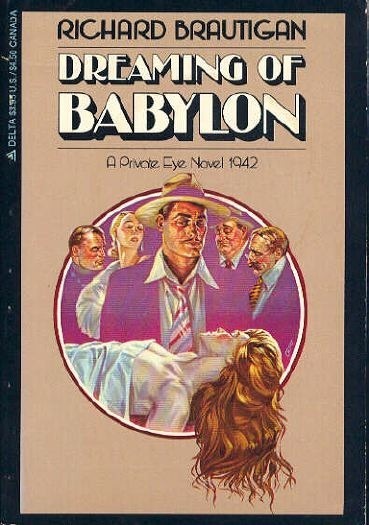My Richard Brautigan mistake (but not Jarvis Cocker's)

By MICHAEL CAINES
It now turns out that I was wrong when I wrote in a TLS piece published earlier this year, in the July 20 issue, that the American writer Richard Brautigan left a bad joke of a suicide note. According to longstanding rumour, it read: "Messy, isn't it?" But according to a letter published in last week's issue, the story is apocryphal; it originates in a book called Elvis Presley's Twin: A metabiography by W. Lambert Gardiner.
I didn't get it from there (and not from Wikipedia, either, where this detail in Brautigan's entry has only recently been updated), but I did see the story repeated in at least one review of Jubilee Hitchhiker, the recent biography of Brautigan by William Hjortsberg, and heard it dropped into conversation as fact during one of the early meetings of the Brautigan Book Club. But Brautigan's daughter Ianthe now confirms that it's not fact but fiction.
Who knew?
Well, besides the author's daughter and the writer of that letter of correction: Jarvis Cocker knew.
Until recently, he could be heard here, courtesy of BBC Radio 4, talking about "one of the twentienth-century's greatest authors" (steady on, Jarvis), and explaining the suicide note as a piece of "Brautigan folklore". (The Wikipedia entry changed the following day.) Brautigan didn't leave such a note. "But he could have" – and a fairly gruesome description follows of the belatedly discovered scene of the suicide. An excerpt from the programme is still available over here.
The shame of it, Cocker continues, is that this "grisly" end should come to such a great writer, "who gifted the language some of its most delicate and playful lines". Some examples then follow (playful, certainly; delicate I'm not so sure about). Here are a few more: short poems haunted in the small print by the sad part of the story.
Cocker's sentence about shame and gifts works a bit better, I think, as a segue than as a serious observation (which writers are grisly ends reserved for?); and the programme doesn't actually dismiss the myth as aberrant but embraces it: it's titled "Messy, Isn't It?: The life and works of Richard Brautigan". Is the suggestion that, aping the characteristic, frank concision of Brautigan's verses, that mythical suicide note succeeds in distilling some truth about the darker side of Brautigan's imagination – his (I hope . . .) well attested self-destructive streak? That it's not biographical fact but a piece of critical insight?
ie, in another sense, Brautigan didn't write that note – "But he could have".
NB Meanwhile, back on the lighter side: the Brautigan Book Club meets three more times this year (beginning with a celebration of his pastiche of a detective novel, Dreaming of Babylon, tonight), before it finally disappears into the night, chanting whimsical lines about the Amelia Earhart pancake and cybernetic meadows as it goes. . . .
Peter Stothard's Blog
- Peter Stothard's profile
- 30 followers



